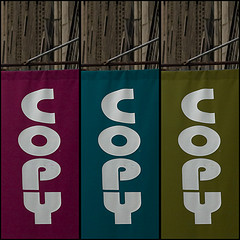 A patent applicant does not receive full patent rights until the patent office grants a patent. This article explores your options when a competitor starts copying your invention while your patent application is pending but before your patent is granted.
A patent applicant does not receive full patent rights until the patent office grants a patent. This article explores your options when a competitor starts copying your invention while your patent application is pending but before your patent is granted.
A person or entity that files a patent application on an invention has patent pending status until a patent issues or the application is abandoned. However, patent pending means that the patent applicant requested that the government grant a patent. Patent pending does not mean that a patent will necessarily be granted. The Patent Office might determine that a patent should not be granted because the application does not meet the requirements for obtaining a patent, for example, the application may be denied if the invention is not new.
The rights that are provided for patent holders are not the same as those provided for patent applicants during the patent pending phase. This is because not every application will become a patent. Therefore, it would not be appropriate to allow patent applicants to stop others from making, using, selling, and importing the invention (e.g. patent rights) described in their patent application because it is possible the Patent Office might later determine a patent should not be granted.
What can be done about copiers during the patent pending stage?
Provisional Rights
There is a section of the law that provides that a patent applicant can get a reasonable royalty for sales of products or services (e.g. copiers or would be infringes) that are covered by a resulting patent. These rights are known as provisional rights (35 U.S.C. 154 – the use of the word “provisional” is unrelated to “provisional” as used to reference a provisional patent application and does not depend on whether or not a provisional application was filed).
The problem with provisional rights as that there are many requirements that must exists in order for a patent applicant to have provisional rights cover a copier or would be infringer. These requirements include (1) the royalties only begin after your application is published and do not begin on the date the application was filed, (2) the copier must have actual notice of your application, which means they must receive a copy of the published patent application or have otherwise read it, (3) the claims in your application must be substantially identical when the patent application is granted as they were when the application was published, and (4) you cannot seek back royalties under the provisional rights section until you actually obtain a patent.
The most problematic requirement is the substantial identical requirement. Changes are often made to the claims during the patent prosecution stage where your patent attorney negotiates with the patent examiner regarding the scope of the patent protection that will be allowed in a resulting patent. Due to the common nature of such changes, generally recovery of royalties under the provisional rights section is unusual.
Notice letter
Even though provisional rights might be rare, you may choose to have a letter sent to a copier to put them on actual notice of your published patent application by attaching a copy to the letter. The letter might request that the copier stop or might invite the copier to a licensing discussion. This may produce results, especially if the startup and design costs are significant for the invention at issue. The copier might not want to invest in those costs if it would be forced to shutdown when you obtain a patent. However, the copier may choose to ignore your letter. There is no requirement that the copier respond. The copier may conclude that you will not obtain a patent or if you do obtain a patent it will not cover the copiers goods/services. Further the copier might try to redesign the product/service to avoid the subject matter of the patent application after receiving your notice.
Speeding Up Application Processing
Once you notice an infringer you might decide to request that the Patent Office speed up the consideration of your patent application. However, sometimes you can benefit from a delay at the patent office where a competitor builds a market and then you are able to take over the market or obtain licensing fees once a patent is granted.
Other IP Claims
It is possible that you might be able to make other intellectual property claims depending on your circumstances, such as claims of breach of contract, copyright infringement, trade dress infringement, trade secret misappropriation, or other infringement infringement.
Conclusion
It can be frustrating to see competitors selling copies of your product in the marketplace while a patent application is pending but before an application is granted. Occasionally a notice letter to the copier will be effective. In other instances you may need to wait until a patent is granted to take action.
Photo credit to flickr user David Goehring under this creative commons license.